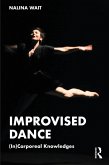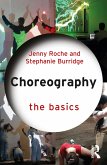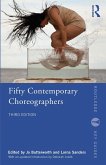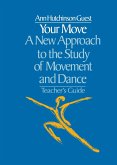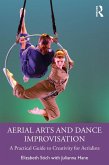Mobilising the languages and conceptual frameworks of theories of affect, embodied cognition, somatics, and dance, this book illustrates the work of specialist improvisers who occupy divergent positions within the complex field of improvised dance. It offers an alternative narrative of the history and current practice of Western improvised dance centred on the epistemology of its (in)corporeal knowledges, which are elusive yet vital to the refinement of expertise.
Written for both a disciplinary-specific and interdisciplinary audience, this book will interest dance scholars, students, and practising artists.
Dieser Download kann aus rechtlichen Gründen nur mit Rechnungsadresse in A, B, BG, CY, CZ, D, DK, EW, E, FIN, F, GR, HR, H, IRL, I, LT, L, LR, M, NL, PL, P, R, S, SLO, SK ausgeliefert werden.
Philipa Rothfield, honorary staff member in Philosophy and Politics at La Trobe University, Australia, and honorary professor in Dance and Philosophy of the Body at the University of Southern Denmark.
'Wait embraces the complex field of contemporary, western improvised dance, in what I'd call a cartography, a genealogy, and an analysis of local practices or case studies. Through a major compilation of sources and authors, Wait offers alternative conceptual models to re-categorize practices and escape dualisms. This book makes an important contribution to dance studies.'
Isabelle Ginot, Professor in the Dance Department at Université Paris 8 - Vincennes-Saint-Denis, France.
'Improvised Dance: (In)Corporeal Knowledges is a tremendous boon to the field of dance improvisation practice, as well as the scholarly fields of improvisation theory and dance studies, providing a rigorous philosophical framework and precise language for some very slippery ideas. Dance resides in this territory: slippery, fleshy, emotional, (in)corporeal. This territory has historically made empirical studies and the academy uncomfortable. With this book, Wait demonstrates dance is a singularly important site of research from which to forward current philosophical thought.'
Megan Bridge, Temple University



